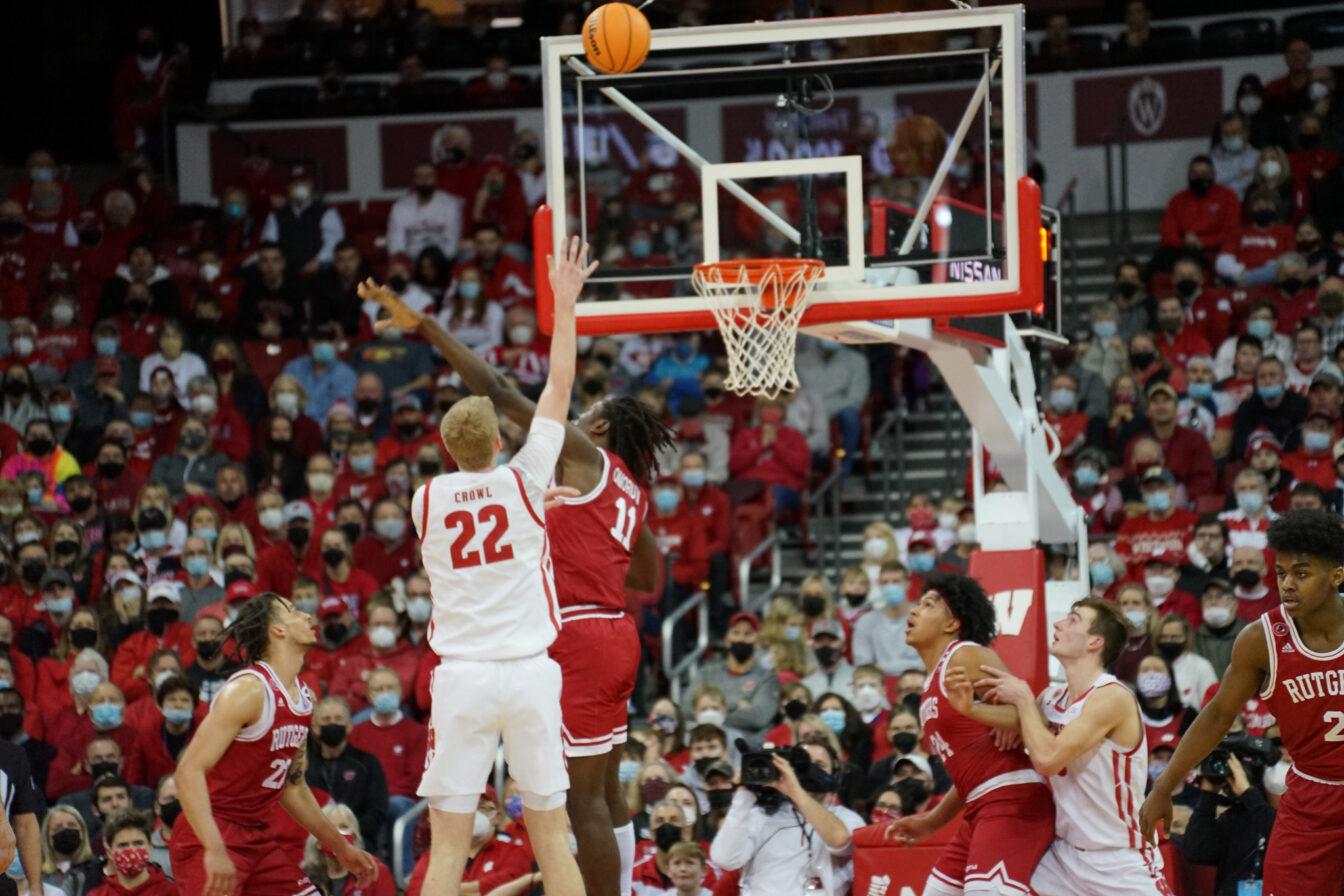The University of Wisconsin men’s basketball team (14-10, 6-8, Big Ten) lost their second game in the last four Saturday, coming up short in overtime against the University of Nebraska (12-14, 5-10) in Lincoln, with a final score of 63-73.
Head Coach Greg Gard and company came into Saturday with hopes of improving following a victory against a Penn State team. Additionally, the Badgers had hopes of rekindling the productivity of junior forward Tyler Wahl. As Wahl went on to finish with just eight points, Wisconsin gave up a 17-point lead, dropping a much-needed home game against the Huskers.
Wisconsin fans have been spoiled in the last five years, taking home the Big Ten regular season championship two times. While this year’s team is without some of the high-level talents both championship teams possessed, early success pulled the wool back over the eyes of many fans.
The first half of Saturday’s game began to explain the difference between today’s team and the team in November as the Badgers carved out a solid 17-point lead powered by a high volume of 3-pointers, which they connected on at a 50% clip in the first half. This trend of high volume and efficiency from the 3-point line is something that, while known to a Gard-led team, has been spotty at best, often cooling down later in games. This was the case Saturday — the Badgers slipped down to just 29% from the field to finish the game.
Additionally, as Wisconsin begins to slip farther down the Big Ten conference rankings, the buzz in the media room as well as in the public is who will come to be the savior, like guards Johnny Davis and D’mitrik Trice.
Sadly for Wisconsin guard Chucky Hepburn, this role has been typecast for the sophomore from the Husker state. Often, the swing offense begins to lag in a Big Ten schedule — hosting coaches often leading their alma maters and consequently well accustomed to stopping the offense.
With other coaches catching on to a well-known offense, pressure has been placed on Hepburn to score using sets outside of the set offense. This phenomenon was illustrated Saturday as the sophomore ended the game with 21 attempts. Case in point, in the final minutes of regulation, Hepburn opted to shoot a step-back three rather than initiate the offense.
Hepburn’s lowered production levels are not the only factor spurring the Badgers’ tumble. The Badgers have continually struggled to rebound on the offensive end, making them extremely susceptible to second-chance points.
In tandem with this, Wisconsin ranked among the lowest in the conference in free throw percentage. While it is easy to point out flaws in individual gameplay, there is no doubt the focus of the team going into Tuesday will be to fix the winning marks, which include rebounding and foul shooting, rather than individual percentages.
The Badgers’ next game is Tuesday, Feb. 14, at 8 p.m. in the Kohl Center against Michigan.


